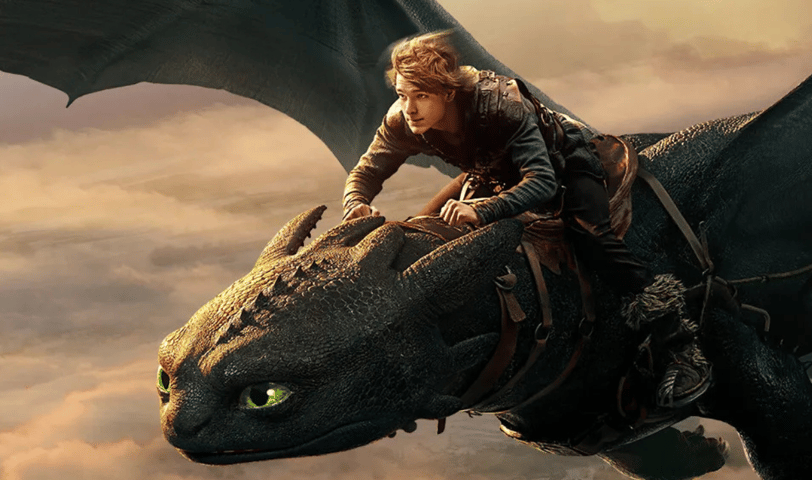"How to Train Your Dragon" Lives and Breathes in Stunning Live-Action Adaptation
A heartfelt coming-of-age tale that soars beyond expectations ★★★★★
Xavier Schwindt
7/1/20253 min read


There's something magical about watching a beloved animated world take physical form. Dean DeBlois's live-action adaptation of "How to Train Your Dragon" doesn't just recreate the 2010 classic—it breathes new life into it, finding that delicate balance between honoring its source and standing confidently on its own.
The story of Hiccup, a Viking teenager who befriends a feared dragon instead of killing it, has always been special. But what makes this 2025 adaptation truly remarkable is how it captures the emotional core that made the original so beloved. This isn't a film that shouts for attention with flashy effects (though the visual work is stunning). Instead, it whispers its truths directly to your heart.
From the opening scenes, we're immersed in Berk, a place where dragon-slaying isn't just tradition—it's identity. The village feels lived-in, with details that tell stories without a word of dialogue. The institutionalized violence isn't glorified but presented matter-of-factly: this is how you earn respect, how you gain a father's approval, how you belong. And immediately, we understand Hiccup's dilemma.
What struck me most was how the film handles the relationship between Hiccup and his father, Stoick. Their disconnect isn't portrayed as simple misunderstanding but as something deeper—a father unable to recognize strength in gentleness, unable to see his son because he's looking for a reflection of himself. This relationship forms the emotional backbone of the film, and the actors bring it to life with remarkable restraint and authenticity.
And then there's Toothless. Creating a live-action version of such an iconic creature was perhaps the adaptation's greatest challenge, but the result is breathtaking. Through a combination of practical effects and CGI, Toothless becomes more than a digital creation—he feels present, alive, with eyes that communicate volumes. The scenes in the hidden cove where Hiccup and Toothless build their trust are masterfully shot, allowing silence and small gestures to speak louder than words.
What I appreciate most about this adaptation is its emotional efficiency. Every scene serves the central theme of transformation—not just Hiccup's growth, but the mutual healing that happens between boy and dragon. The training ring becomes a powerful visual metaphor for conformity, while the cove represents authenticity. When Hiccup discovers the truth about the Red Death—that the dragons are victims of a larger, more insidious force—the revelation lands with perfect timing, deepening both the story and its resonance with our world.
The climactic battle sequence balances spectacle with emotional weight. Hiccup's choice to ride into danger isn't portrayed as heroic bravado but as a painful necessity born from integrity. And his physical sacrifice—emerging changed and incomplete—feels earned rather than manipulative.
Perhaps most beautiful is the film's final act, showing dragons integrated into village life with a casual warmth that speaks volumes. The moment when Stoick presents Hiccup with a handcrafted saddle for Toothless brought tears to my eyes—a father finally seeing and accepting his son for who he truly is.
While some might quibble about certain casting choices (and yes, a few roles could have been better cast), these minor issues fade against the film's overwhelming strengths. DeBlois has created something rare: an adaptation that respects its audience enough to be patient, to trust in quiet moments, to let meaning emerge organically rather than through exposition.
For young viewers coming of age themselves, this film offers profound wisdom about authenticity, courage, and the price of challenging systemic beliefs. For those who grew up with the original, it provides a mature revisiting that honors their memories while offering new depths.
In a landscape of reboots that often miss the point of what made their originals special, "How to Train Your Dragon" stands tall—a film that understands that the most powerful stories aren't about dragons at all, but about the battles within ourselves, the courage to be seen, and the transformative power of being truly understood.
Connect
Join my journey through words and stories.
Explore
Xavierschwindtwrites@gmail.com
970-518-6450
© 2025. All rights reserved.
